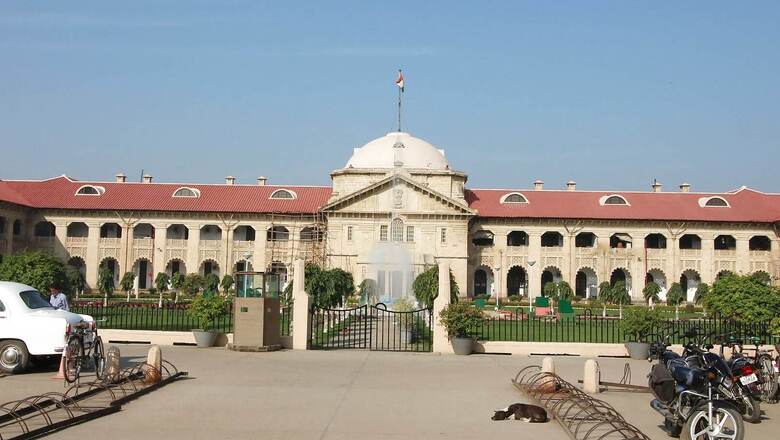
views
The Allahabad High Court recently observed that onerous surety conditions which have no connection with the socio-economic status of the prisoner negate the order granting bail and undermine the fundamental right of liberty of the prisoner guaranteed under Article 21 of the Constitution.
The bench of Justice Ajay Bhanot said, “The purpose of sureties is dissuasive in intent, but unrealistic surety demands are punitive in effect. The Indian Constitution does not put a price tag on liberty”.
The court observed so while dealing with a Section 482 CrPC plea moved by an employee of a company running with fraudulent policies. The man had been made accused in six different cases connected to the offences committed by the company wherein the trial court had fixed a separate surety for each case while granting bail to him.
However, the man had not been set at liberty as he was unable to arrange sureties in the aforesaid six cases. Therefore, he prayed before the high court to allow a single surety for all six cases.
The high court, while allowing the application, held that the demand of multiple sureties made by the trial court was onerous and unsustainable in law.
The court underscored that the right of fundamental liberties of the applicant/accused were being curtailed on account of his poverty and inability to arrange multiple sureties for cases instituted against him.
The court said that though the necessity of appropriate sureties for a criminal trial cannot be denied, the trial court, while determining the sureties, needs to satisfy twin requirements i.e. balance and correlate the imperative of setting prisoners at liberty pursuant to the bail order and securing their fundamental rights with the demand of producing adequate sureties as an assurance of their regular attendance at the trial and a deterrence against flight from justice.
The court stressed that the trial court should factor the socioeconomic circumstances of the prisoner while fixing sureties.
Further, while stating that despite unequivocal holdings of various constitutional courts the trial courts continue to approach the issue of fixation of sureties in a mechanical manner and neglect to make requisite enquiries as contemplated in the preceding parts of the judgment, court issued following directions:
(1) A prisoner can make an application for lesser surety which must state material facts relating to his socioeconomic status and roots in the community.
(2) The District Legal Service Authority (DLSA) shall examine the status of the prisoners who have been enlarged on bail but are not set at liberty within seven days of the bail order and advise and assist the prisoner to promptly move an application for refixation of the surety.
(3) The trial court shall make an enquiry consistent with the present judgment and pass a reasoned order depicting consideration of relevant criteria for fixing sureties with utmost expedition.
(4) Every trial court is under an obligation to satisfy itself about the socioeconomic conditions of the prisoner and probability of absconding and his roots in the community and fix sureties commensurate with the same. The State authorities or other credible agencies as the court may direct to promptly provide the requisite details.
(5) In case the prisoner is from another State and is unable to produce local sureties, sureties from the prisoner’s home district or any other place of his choice determined by the court of competent jurisdiction of the said district and the State shall be accepted by the trial court.
(6) The prisoner/counsel may state the details of the socio-economic status of the prisoner in the bail application in the first instance. (This will facilitate an expeditious consideration of the issue related to sureties).
Read all the Latest India News here




















Comments
0 comment